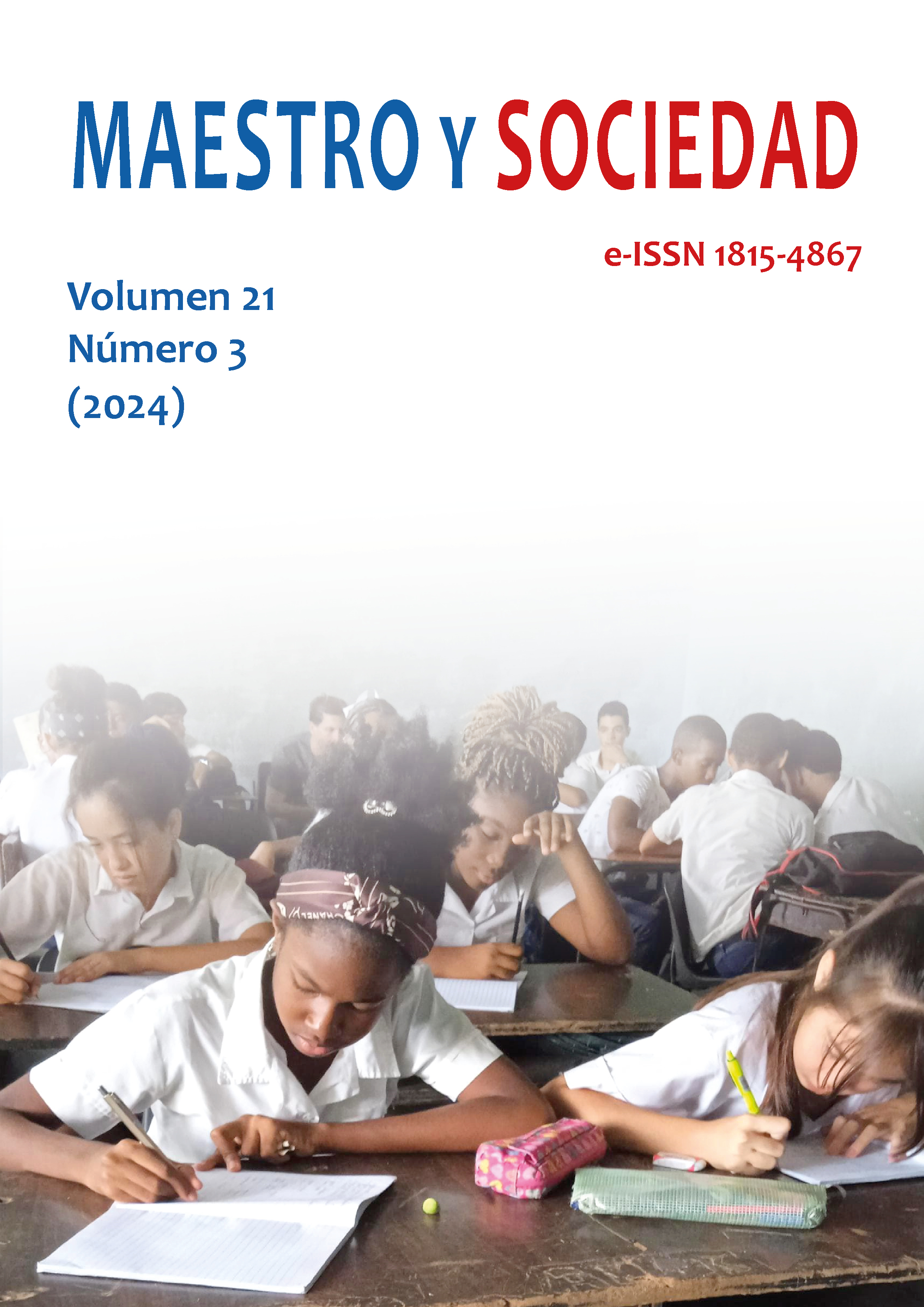Dance and body expression in sublevel II of early childhood education
Keywords:
Corporal Expression - Didactic Activities - dance and dance - Initial EducationAbstract
Introduction: The present research work is titled "Dance and body expression in sublevel II of initial education" where its objective was to demonstrate the importance of dance as a didactic activity for the development of body expression in boys and girls of the sublevel. II of Initial Education at the Portoviejo Fiscal School No. 25, in the Portoviejo canton, Manabí. Materials and methods: A mixed approach was used, an observation guide was applied to the children, then an interview was carried out with 2 Initial teachers of sublevel II, the certain variables were theoretically based. Results: Currently, it was evident that there is a need to implement didactic activities that stimulate children to dance and at the same time strengthen the development of corporal expression. In addition, it was evident that 9.5% of children have difficulties developing the body expressions due to the lack of stimulation, it is concluded through the bibliographic and documentary review that many authors have worked on the subject and indicate that dance as a didactic activity is essential to develop body expression in children of sublevel II of Education Initial, which allows the authors of this research to suggest several didactic activities, focused on dance within the teaching and learning process, which served as a basis to develop and strengthen different areas of body expression in boys and girls of sublevel II.
References
Aguilar, R., & Huamaní, N. (2017). Desarrollo de la habilidad motriz fina en los niños y niñas de 5 años de la Institución Educativa N° 270 de Huaytará-Huancavelica. [Tesis de Pregrado. Universidad Nacional de Huancavelica]. https://repositorio.unh.edu.pe/bitstream/handle/UNH/1533/T.A.%20AGUILAR%20CHUQUIHUACHA.pdf?sequence=1&isAllowed=y
Cabrera, B., & Dupeyrón, M. (2019). El desarrollo de la motricidad fina en los niños y niñas del grado preescolar. Mendive. Revista de Educación, 17(2), 222–239. http://scielo.sld.cu/scielo.php?script=sci_arttext&pid=S1815-76962019000200222&lng=es&tlng=es
Cárdena, Y., y Castro, A. (2021). Técnicas grafo-plásticas innovadoras como experiencia de aprendizaje para desarrollar su grafomotricidad. Revista Arbitrada Interdisciplinaria Koinonía, 6(4), 156–177. https://fundacionkoinonia.com.ve/ojs/index.php/revistakoinonia/article/view/%201496/pdf
Díaz, T., Bumbila, B., & Bravo, G. (2017). Las técnicas grafo plásticos y la pre escritura. https://www.eumed.net/rev/atlante/2017/06/pre-escritura.html
Hermida, P., Barragán, S., & Rodríguez, J. (2017). La educación inicial en el Ecuador: margen extensivo e intensivo. Revista de Análisis Estadístico Analítika. 14(2), 1-40. https://bit.ly/3dxIQE3.
Le Boulch J. (1986). Hacia una ciencia del movimiento humano: introducción a la psicokinética. Biblioteca de Técnicas y lenguajes corporales.
Mateo, C.& Cruz, S. (2010). Desarrollo físico y psicomotor en la etapa infantil. [Tesis de pregrado. Universidad del País Vasco]. http://www.sc.ehu.es/ptwmamac/Capi_libro/38c.pdf
Romero, S. (2018). La expresión corporal en la educación infantil. [Tesis de pregrado. Universidad de Valladolid].
Sánchez, F. (2019). Fundamentos epistémicos de la investigación cualitativa y cuantitativa: consensos y disensos. Revista digital de Investigación en Docencia Universitaria, 13(1), 104–119. https://doi.org/10.19083/ridu.2019.644
Sánchez, A. (1999). Psicofísica: concepto, método y aplicaciones. Alianza.
Villada, P & Vizuete, M. (2019). La Expresión Corporal. Definición y conceptos esenciales desde la Educación Física. Publicado en: Los fundamentos teórico-didácticos de la educación física. Editores: Secretaría General Técnica, Subdirección General de Información y Publicaciones.
Published
How to Cite
Issue
Section
License
Copyright (c) 2024 Elsa Marlene De La Cruz Morales, Lesly Alejandrina Cevallos Vélez, Cindy Bucaran Intriago, Jennifer Estefanía Villaprado Loor

This work is licensed under a Creative Commons Attribution-NonCommercial-NoDerivatives 4.0 International License.
This journal provides immediate open access to its content, based on the principle that offering the public free access to research helps a greater global exchange of knowledge. Each author is responsible for the content of each of their articles.



























 Universidad de Oriente
Universidad de Oriente 